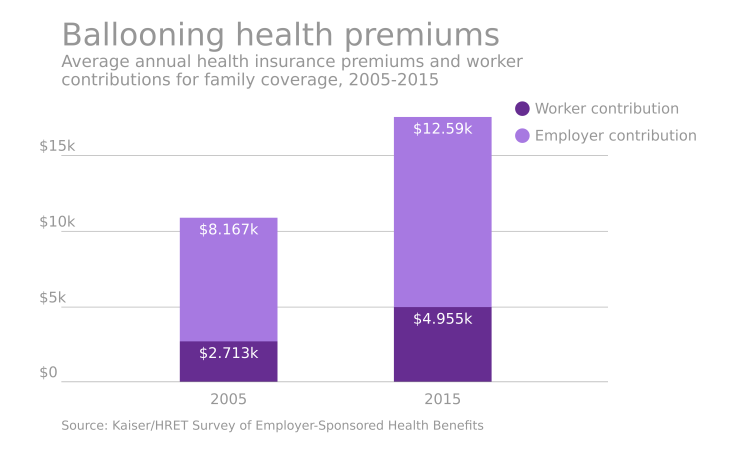Under the Affordable Care Act, companies with at least 50 employees must now provide health insurance benefits or else pay penalties. However, employers will not have to pay penalties for employees who qualify for and enroll in Medicaid – a jointly funded federal and state program for people below or near the federal poverty level – instead of the company plan. This prospect has spawned its own business niche to help companies identify their Medicaid-eligible employees in order to get them off of private benefits rolls.
On the surface, it looks like employers could benefit in two ways from shifting workers to Medicaid. First, they would avoid the costs of providing health insurance for those employees. Second, they would reap the well-established productivity rewards of healthier workers who previously were uninsured. The evidence generally shows that insured employees are more likely than the uninsured to have a source of regular care and get needed treatment when they are ill.

The caveat is that some of the strongest evidence showing that healthier employees have fewer absences and better job performance comes from workforces with employer-sponsored health insurance or access to workplace lifestyle and disease management programs. This arrangement aligns health insurance carriers’ financial interests in reducing costly and unnecessary care with employers’ needs for employees who are on the job consistently, and who feel well enough to do their work at a high level – all the while leveraging the workplace environment to influence employees’ health choices in ways that are subtle (e.g., by fostering a strong culture of health) and not-so subtle (e.g., by incentivizing participation in lifestyle and disease management programs).
Companies therefore may see no productivity boost from shifting workers to Medicaid even if these patients get the same quality of care as patients with employer-sponsored insurance because employers’ business interests in a healthier workforce will not buttress Medicaid’s approaches to health improvement and cost management. This is to the detriment of employers, their workers and taxpayers alike.
The risk of reducing healthcare costs at the expense of workforce health and productivity is not limited to low-wage sectors. Private health insurance exchanges – which represent another option for lowering healthcare costs and administrative burden by outsourcing benefits – also could disrupt the link between employers’ needs for healthy workers and their ability to influence health outcomes. The critical difference is that companies seeking to do business with a private exchange are well-positioned to insist on preserving their workforce productivity. The exchanges have a vested interest in implementing population health management approaches that demonstrate improvements in enrollees’ health alongside flat or declining trends in costs and their clients’ sick day and disability absences. Making this case with Medicaid will be more difficult.
One might argue that smaller, low-wage, zero-benefits employers are not likely to support their workers’ health in the first place. This may be true enough. But the new rules requiring employers to cover costs for their workers’ care still could prompt some businesses to think further about what they should get for their money in return: healthier, more productive workers who create greater value for the firm. Shifting coverage to Medicaid represents a lost opportunity to improve business processes and may prove costly in the long run for businesses in thin-margin industries that can least afford high absenteeism and subpar customer service.





